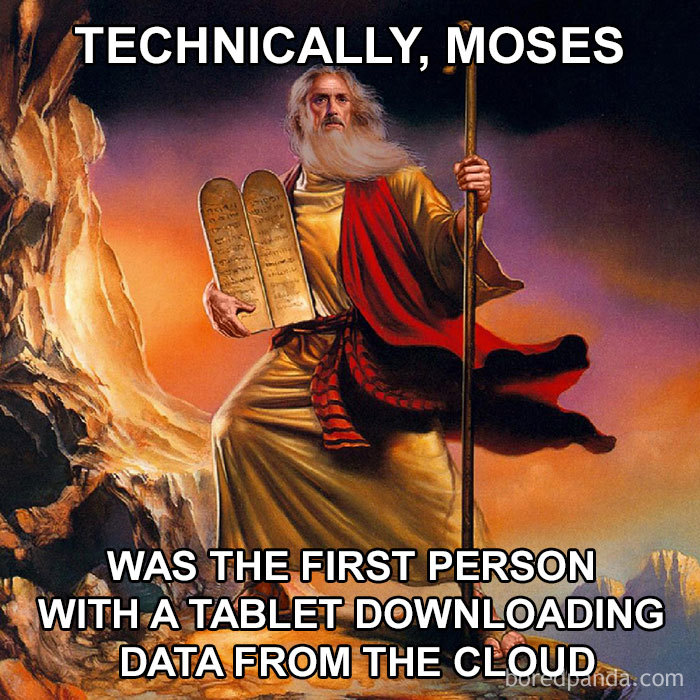written by Aurora E. L. Turkenburg
Memes come in many forms, shapes, and sizes. But the function of a meme is always the same: they are meant to make you laugh. Hysterically. Recently the amount of religion-inspired memes on my social media feed – whether COVID induced, or “God-given”, is rising.
But what, exactly, are religious memes – and why do Christians love them so much?

While I could say that I recently came upon an article by Boredpanda detailing an interview with a Christian pastor on the use of religious memes – I should confess I have been a fan of religious memes for the past 5 years. There is something quite calming about laughing about one’s own religion, and luckily there is dark humor galore to be found online.
Memes have become an increasingly used mode of conversation online. It is not strange to see them used as complete answers to posts, to describe situations a user is trying to convey or to come across a meme-fight (in which two or more people share memes in hopes of winning the title of ‘funniest’ meme-sender).
But what are memes exactly?
If we are to believe Google’s build in etymologist, ‘Oxford Languages’, the word meme comes from the Greek mimema, meaning ‘that which is imitated’. Memes are:
an element of a culture or system of behaviour passed from one individual to another by imitation or other non-genetic means.
by Oxford Languages via Google
Taking the above definition, we can see how memes are parts of culture. They are ways to express and share cultural beliefs, acts, and other systems, including religion. However, memes, simply speaking, are above all:
an image, video, piece of text, etc., typically humorous in nature, that is copied and spread rapidly by Internet users, often with slight variations.
by Oxford Languages via Google
But not every funny picture you will come across is a meme. It is precisely the combination of cultural elements, image, and internet sharing/variation-making that creates a successful internet meme.
In a 2013 article in the Journal of Religion, Media and Digital Culture we see some research into religious memes appear as a scholarly endeavor. In the article, titled “Reading Religion in Internet Memes”, the religious meme is seen as an example of non-institutionalized, ‘lived’ religion, online. Other insights include the use of religious memes to both critique and support religion.
The critical Christian meme has 2 forms: self-mockery or an attack on religion. It is not uncommon, however, for both Christians and Atheists to own social meme-dia channels that share critical memes on Christianity. The Atheist will most likely use an attack-form, but the line is quite blurry where humor is involved. There are memes that criticize specific bible-stories, such as the making of the world in 7 days, or criticize lived religion, such as a meme that criticizes 1-like-is-1-pray-for-health Facebook posts.

source: https://static.boredpanda.com/blog/wp-content/uploads/2019/04/christian-memes-17-5cbf1e5eb2b18__700.jpg
Most religious memes discuss Christian religion, or could easily be fit into Christian lore. There is a number of reasons for this, and research is still ongoing. First and foremost, it should be said that Christians officially make up the largest number of religious adherents in the world (about 29% of the world population considers itself Christian). However, since the three Abrahamic religions (Christianity, Judaism and Islam) share common roots and stories, a Judaic meme or Islamic meme may easily be mistaken for a Christian meme.
One can also imagine that those who were of the first meme-culture, the citizens of the general West, were more likely to be Christian. This is rapidly changing, however. I am personally looking forward to seeing the first meme about the Buddha, Visnu, or the flying-spaghetti monster appear on my social feed.
What is clear, however, is that as long as there will be memes, there will most likely be Christian memes to add.
What is your take on religious memes? Do you enjoy them, or are they are a thorn in your crown?
Tell me in the comments!
…Extra points from me for those of you who comment in religious memes…
Want to read more about digital religion? Check out some of the other religion-inspired posts on this blog:


Recent Comments